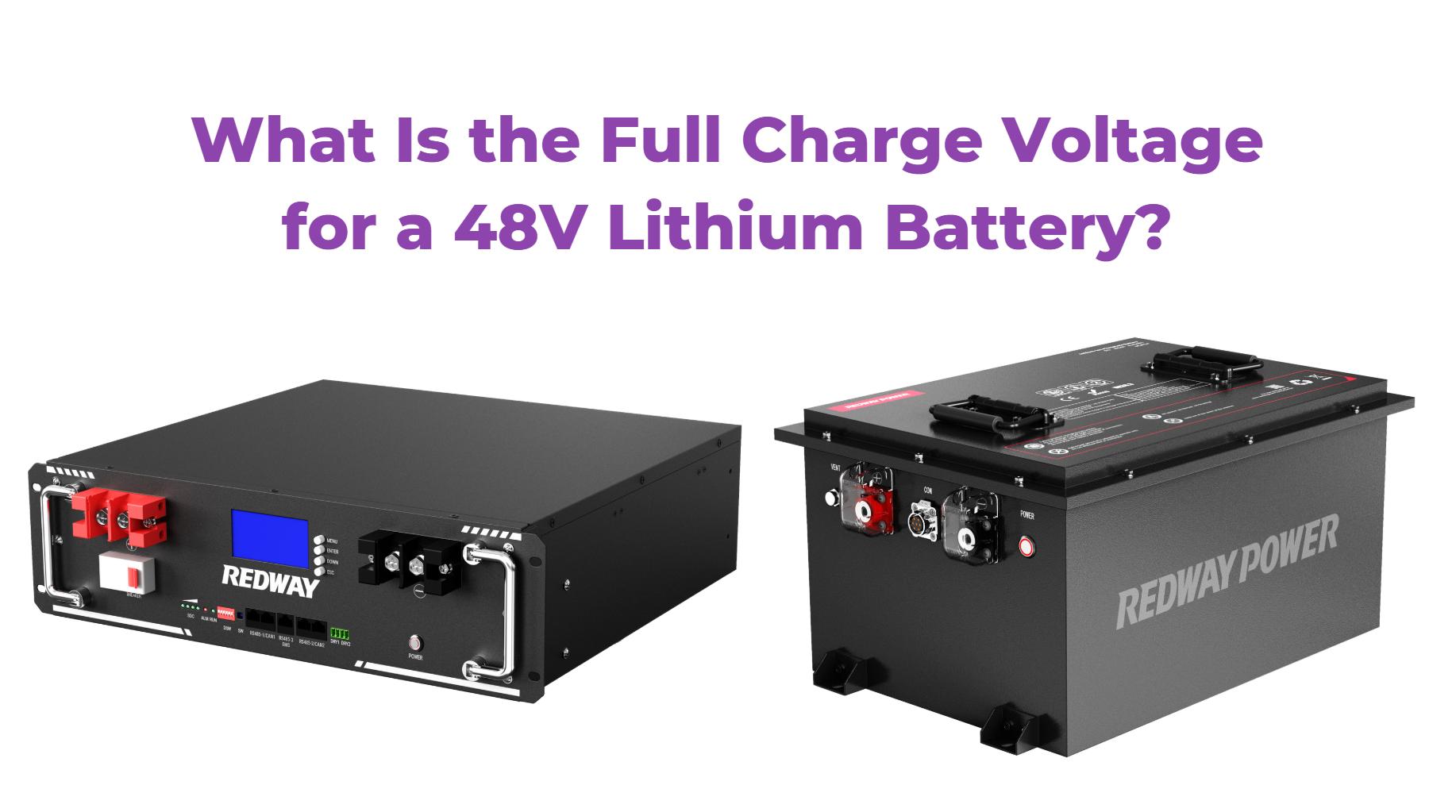The full charge voltage for a standard 48V lithium battery, typically configured as a 13-series (13S) lithium-ion battery pack, is approximately 54.6 volts. This voltage corresponds to the maximum charge level, ensuring optimal performance and longevity of the battery.
Overview of 48V Lithium Batteries
What Is a 48V Lithium Battery?
A 48V lithium battery is commonly used in applications such as electric vehicles, solar energy storage systems, and backup power supplies. These batteries are made up of multiple lithium-ion cells connected in series to achieve the desired voltage.
Wholesale lithium golf cart batteries with 10-year life? Check here.
Common Applications for 48V Batteries
- Electric Bikes and Scooters: Providing efficient power for longer rides.
- Solar Energy Storage: Storing energy generated from solar panels.
- UPS Systems: Offering backup power during outages.
- Marine Applications: Powering boats and other watercraft.
Charging Characteristics
Full Charge Voltage of 48V Lithium Batteries
Want OEM lithium forklift batteries at wholesale prices? Check here.
The full charge voltage for a typical 48V lithium battery is approximately 54.6 volts (13 cells x 4.2 volts per cell). Understanding this voltage is crucial for ensuring that the battery is charged correctly and safely.
| Configuration | Number of Cells | Max Charge Voltage |
|---|---|---|
| 13S | 13 | 54.6 V |
Factors Affecting Charge Voltage
Several factors can influence the actual charge voltage experienced by the battery:
- Cell Chemistry: Different lithium chemistries (e.g., LiFePO4 vs. NMC) may have varying maximum charge voltages.
- Temperature: Charging at extreme temperatures can affect voltage readings and performance.
- Battery Age and Condition: Older batteries may not reach their rated maximum charge voltage due to wear.
Battery Management Systems (BMS)
Role of BMS in Charging
A Battery Management System (BMS) is critical for monitoring and controlling the charging process of lithium batteries. It ensures that each cell within the battery pack is charged evenly, preventing overcharging and prolonging battery life.
Benefits of Using BMS
- Safety Monitoring: Protects against overvoltage, undervoltage, and overheating.
- Cell Balancing: Ensures all cells are charged to the same level, enhancing performance.
- Data Logging: Provides insights into battery health and usage patterns.

48v 100ah rack-mounted lithium battery BMS
Safety Considerations
Best Practices for Charging
To ensure safe charging practices for your 48V lithium battery:
- Use a compatible charger that matches the battery specifications.
- Monitor charging conditions to avoid overheating.
- Avoid charging in extreme temperatures.
Common Charging Mistakes to Avoid
- Overcharging: Exceeding the maximum voltage can damage cells.
- Ignoring BMS Alerts: Always heed warnings from your BMS regarding charging issues.
- Using Incompatible Chargers: Ensure chargers are designed specifically for lithium batteries.
Latest News in Battery Technology
Recent advancements in lithium battery technology focus on improving energy density and safety features. Innovations include enhanced BMS capabilities that provide real-time monitoring via smartphone apps, allowing users to track their battery’s health more effectively.
Redway Expert Comment
“Understanding the full charge voltage of your 48V lithium battery is essential for maintaining its health and efficiency. Always use a reliable charger and monitor your battery’s condition regularly to ensure optimal performance.”
Frequently Asked Questions (FAQ)
Q: What is the maximum charge voltage for a 48V lithium battery?
A: The maximum charge voltage is approximately 54.6 volts.Q: Can I use any charger for my 48V lithium battery?
A: No, always use a charger specifically designed for your battery type to prevent damage.Q: What happens if I overcharge my lithium battery?
A: Overcharging can lead to overheating, reduced lifespan, or even catastrophic failure.
Know more:
48v battery full charge voltage
48v ebike battery voltage chart
48v lithium battery full charge voltage






